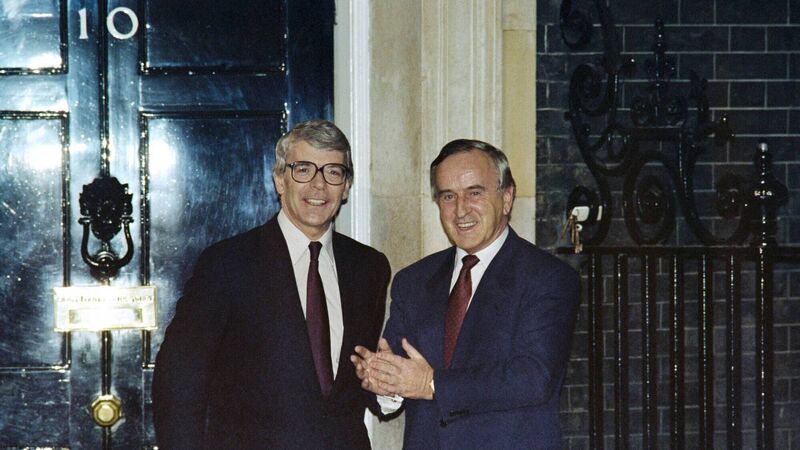Irish Examiner view: Albert Reynolds, the broker of deals

British prime minister John Major with Taoiseach Albert Reynolds at 10, Downing Street in London, during a visit by Reynolds for talks over British troops in the North. Picture: Getty
The release of previously confidential government papers is always an intriguing time for historians, writers,
researchers, and citizens in general. And how much more valuable it is when the matters and personalities covered are within our memories, now that the time lag on embargoed material has been reduced from 30 years to 20.
The current treasure trove covers 1992 to 1998 in Irish-Anglo relations and the stewardships of Charles Haughey and Albert Reynolds. The British prime minister was John Major, whose main appeal and endearment to Ireland was that he was not Margaret Thatcher.













